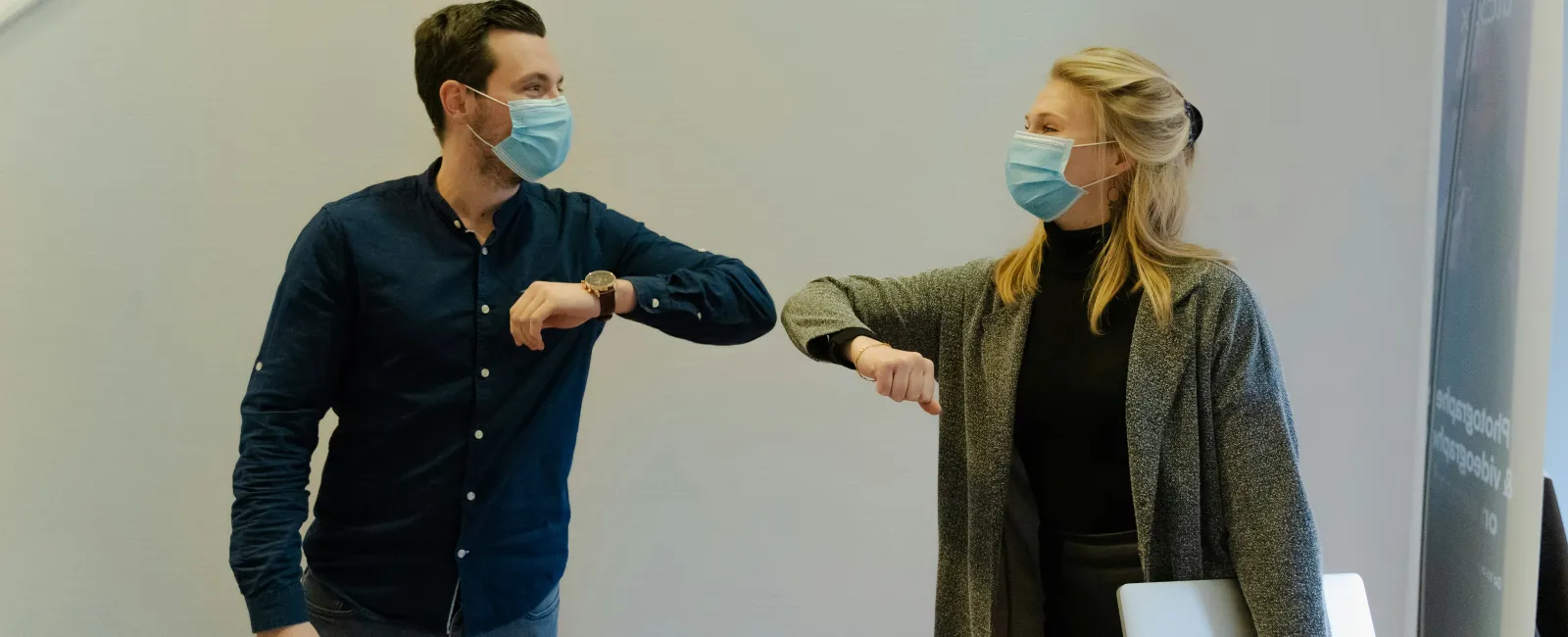At Ascend Medical, we know that open and honest communication is currently one of the most invaluable tools we have to slow the spread of COVID-19. Unawareness can lead to accelerated community spread between one individual to many others if infected individuals do not know they were exposed and fail to quarantine as soon as possible. Therefore, promptly notifying those around you if you test positive helps diminish the spread of COVID-19.
Why You Need to Tell People
It's important to remember, this virus is extremely contagious, with nearly 100 million cases worldwide. COVID-19 is much more contagious and lethal than the flu and spreads from respiratory droplets, which can travel through the air via talking, coughing and sneezing—or even from close person-to-person contact.
When Should You Say Something?
Recent data from McKinsey suggests that one infected individual can spread the virus to 2-4 other people, whether or not they exhibit symptoms. Best practice: do not wait for a positive diagnosis. Instead, notify others as soon as you start to feel symptoms.
Who Do You Notify?
After self-isolating, create a list of everyone you came into contact with beginning two days before you first started showing symptoms or before receiving a positive test. This list should include anyone who was less than six feet from you (masked or unmasked) for approximately 15 minutes or longer. Intimate partners, members of your household, and anyone whom you may have shared utensils with should be promptly notified.
"It also does not hurt to call places you've been and inform them you've tested positive," said Dr. John Michael Smith, Chief Medical Officer at Ascend Medical. "That way, they can inform staff and other patrons who were there around the same time."
How Should You Communicate?
When communicating that you've been infected with the virus, avoid In-person communication as this runs the risk of spreading the disease further. Call or text those you've come into contact with or utilize tools like Facetime or Zoom to get the message out.
While these conversations may be uncomfortable, being transparent about your diagnosis is critical to stopping the transmission chain and protecting the health and wellness of those around you.
How to Respond to Negative Reactions
It is impossible to predict how someone will react to such sensitive news as finding out they may have been exposed to the virus. While some people may be kind and understanding, others may have a more negative response.
Regardless, remember that the range of emotional responses to this news is normal and try to exercise patience with your loved ones when it comes to this conversation. Always refer to the latest information published by the CDC when answering questions related to COVID-19 and advise them to call their doctor with questions they still have about the disease.
How to Handle the Situation with Your Employer
The White House recently signed into law an emergency aid package, which gives workers paid sick leave if they have to take time off because of the COVID-19 situation; however, an understanding of your basic rights can help when mitigating the situation with your employer.
Most employment attorneys will agree that those who are not attending work due to their own or a family member's serious medical condition will be protected under the Family Medical Leave Act.
Whether you're handling coronavirus or the seasonal flu, choose a primary care system that revolves around you. We offer membership-based healthcare services, mobile diagnostics, and 24/7, on-demand virtual visits to address all of your health concerns - exactly when and where it's convenient for you. Book your same day appointment today!
